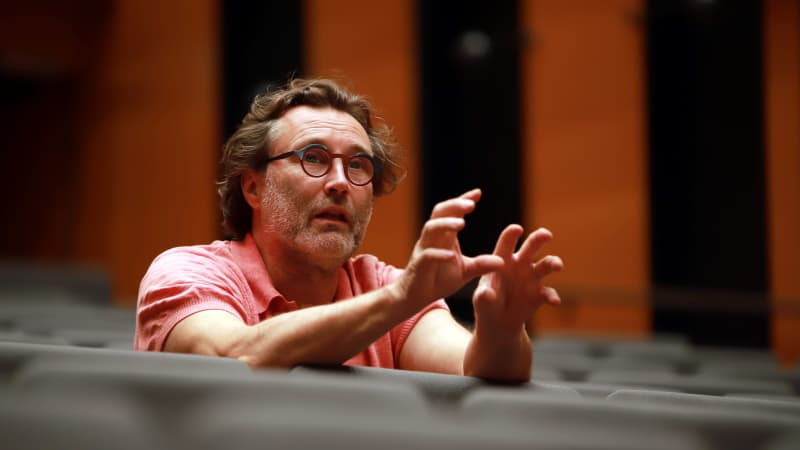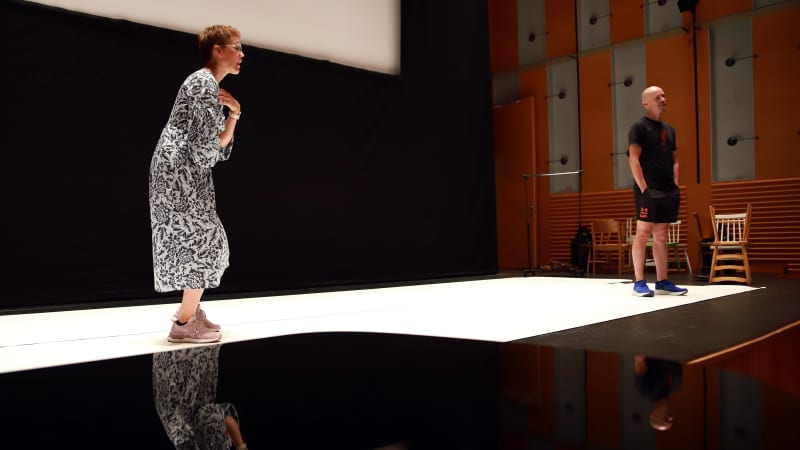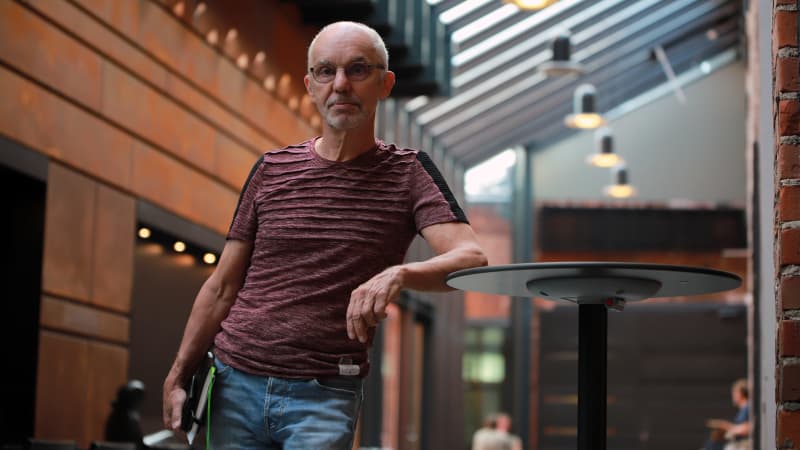The big Lappish production starring top soprano Mari Palo will also be taken to the National Opera. The fur cap opera tells about the serious consequences of harnessing Kemijoki for people and nature.
Vuolas Kemijoki was in its time one of the greatest salmon rivers in Europe. Because Finland needed energy, Pohjolan Voima built the Isohaara power plant in 1949, and as a result the salmon population died.
At the same time, the entire livelihood and way of life along the river was lost.
– One of the main characters, Reino, who has lost hope, plans to drown, but the last salmon of Kemijoki, a mythical creature, symbolically tells the story of how Lapland’s nature was treated badly after the war.
\”I have spared the generation of my fathers\”
For Tiuraniemi, who lived on the banks of Kemijoki, the topic has been her own survival path in life.
– I was a small, sensitive boy who saw his own father turn into a quiet man who had lost his will to live. His generation did not know how to put into words the feeling that was dammed in their souls, which was caused by the damming of the Kemijoki and the loss of the landscape. I have carried this trauma in my own life and expressed it in my artistic production, says Tiuraniemi.
The opera is an important juncture in Tiuraniemi’s internal struggle, through which grace has been found.
– I have pardoned the generation of my fathers, I have pardoned myself and forgiven.

The use of power is always relevant
– This is a rare piece of musical theater because it is politically current. Operas usually live in the past, whose social significance has been diluted, says Söderblom.
Few think that Finland’s miracle as a payer of war reparations happened partly through brutal means, the price of which was human tragedies and the destruction of irreplaceable nature.
– This is still happening globally. The opera is a description of the conflict between the individual and the use of political power, about how technology and the power of money affect people in a cruel way.
Five years of training culminates in Rovaniemi

Lapland’s first opera of this scale will be performed a total of six times in Helsinki and Rovaniemi – and that’s a shame, the director snaps.
– In Finland, there is one big opera house in Helsinki and then a desert outside of financial resources. When such a huge amount of work has been done, there could be more shows, says Söderblom.
The creators hope for more shows in Finland and also abroad.
_What thoughts did the story evoke? You can participate in the discussion with Yle Tunnus on August 28. until 11 p.m._

